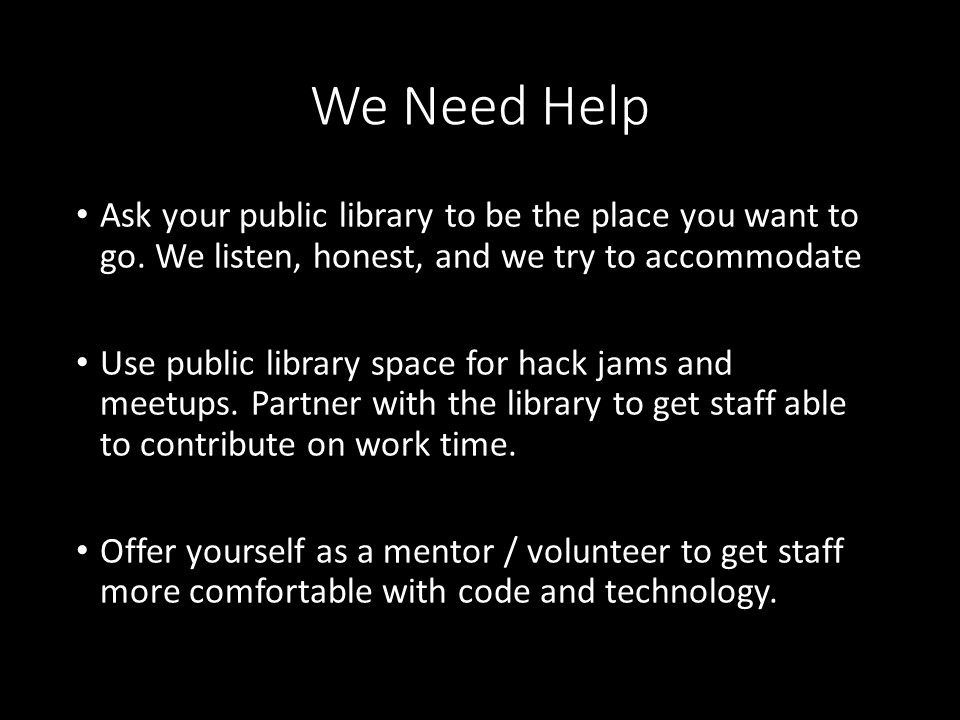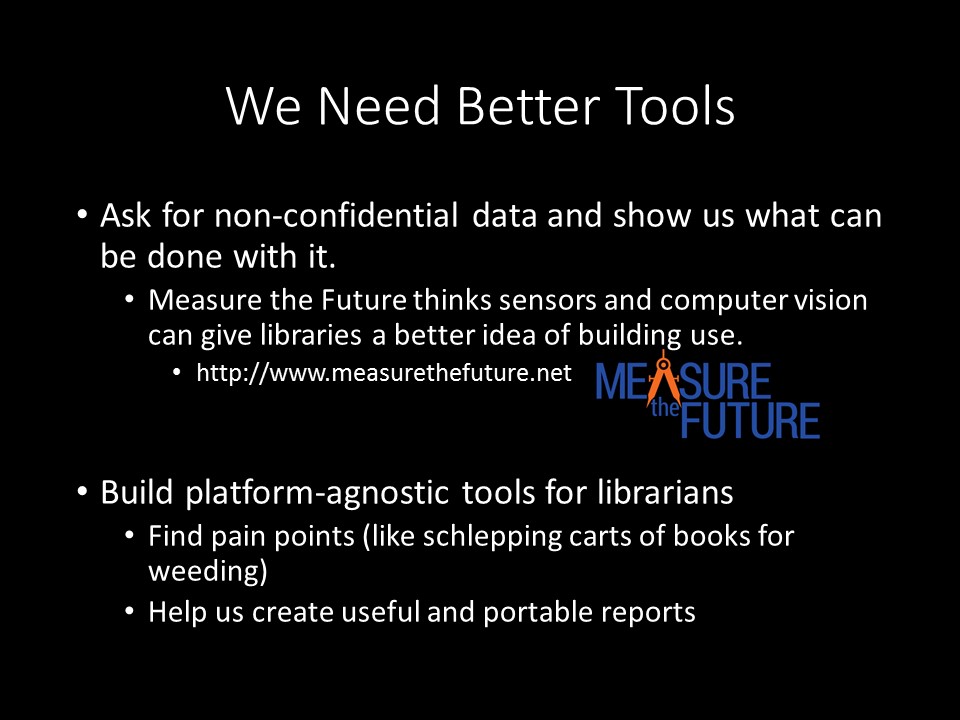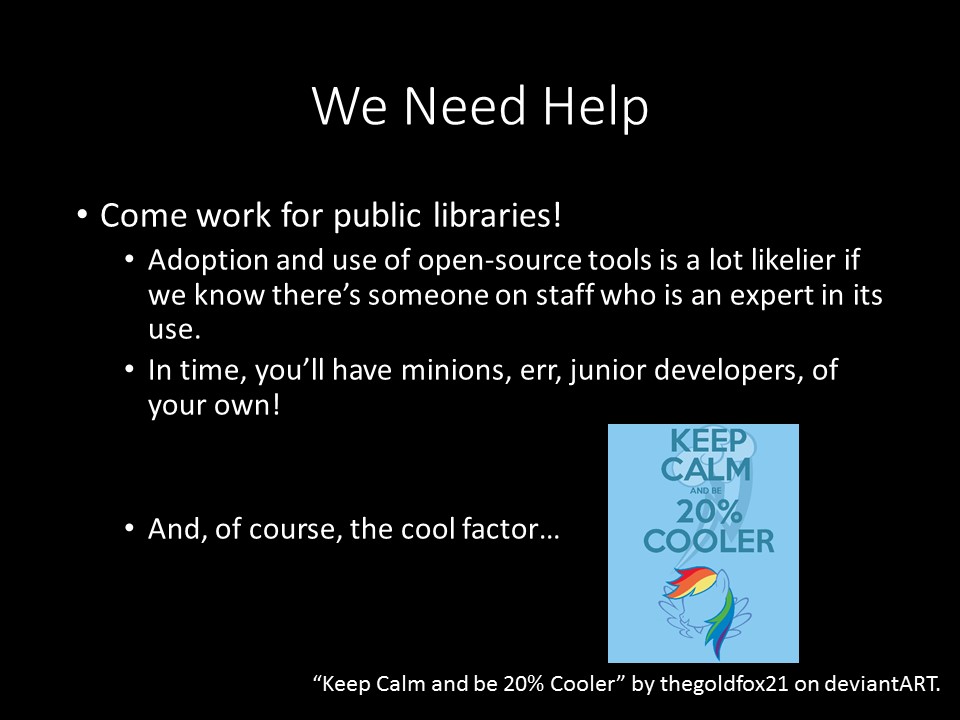Please Help Us

Public libraries are great at adaptation, even when it seems like we're adapting to what just was the latest thing right before the new latest thing hits. One of the things your public library is looking for is feedback about what you want from them. If you want to build a hack jam, or a community of developers interested in working on projects together, or if you want your public library to carry materials that will help you with Making and/or teaching things, your public library is probably going to want to help you out. If you bring a lot of people in with you, who are also wanting the same sorts of things, they will probably want to help out even more. The easiest, lowest-effort way of helping a public library be more relevant to you is letting them know what's relevant to you. Insistently, repeatedly, and to the Board of Trustees as well as the regular staff.
If you want to be more involved, offering yourself up as a mentor to the staff is a good thing. Being flexible enough to mentor while staff is on working time is great. If you want to brand it as a coaching gig or something else where you might make a little coin while at it, please remember that while public libraries may appear to rake it a lot of money from their taxing authorities, most of that money is spent in wages and materials as soon as it arrives. There's not a lot of discretionary spending in public libraries, so the less expensive you feel you can be, the more likely you are to get hired. Bring program ideas with you, if you can, or projects that would be helpful for beginners to use and extend, so that those participating feel like they're making useful contributions.

Ask for non-confidential data from the library and show what you can do with that data to help the library better target its resources - circulation and door counts are clunky measures at best for determining effectiveness. A project like Measure the Future thinks that computer vision and liberally scattered sensors could help improve data collection. Maybe they're right, maybe they aren't, maybe you have a better idea. The expertise that you have and the work that you've done with Open Hardware and or Open Source Software is still valuable and relevant, even if the context is different.
Build platform-agnostic tools for front-line staffers to use. If it's attached to an ILS like Evergreen or Koha, that's okay, but it would be (about 20%) cooler if the tools could ingest a report from anywhere, or be hooked up to any sort of database, and then pop out useful things. Ask your public librarians what their pain points and bottlenecks are in their workflows - it will give you a good idea where to target your efforts. I don't particularly like schlepping carts of books back and forth, or having to wand every book on the shelf to see if it needs to be weeded - far better to set some options into a database or report query and let the computer do the sifting, so that all I have to do in addition to plucking the weeding candidates is touch the books to see if they're physically damaged. It will still take time, but it will take a lot less time if the computer can be set up to evaluate based on my criteria beforehand.

And finally, if you can afford to, get a job with us! Having expertise in-house on open source software and hardware will make it more likely for conversation and hopefully, adoption of those tools. It changes the money being spent from vendors that may or may not listen to us, or worse, that will go out of business and leave us without the ability to adapt or continue using their technologies, to spending it on salaries and expertise that will advance the community of developers and the projects in use through the organic method of having to solve library-related problems with them.